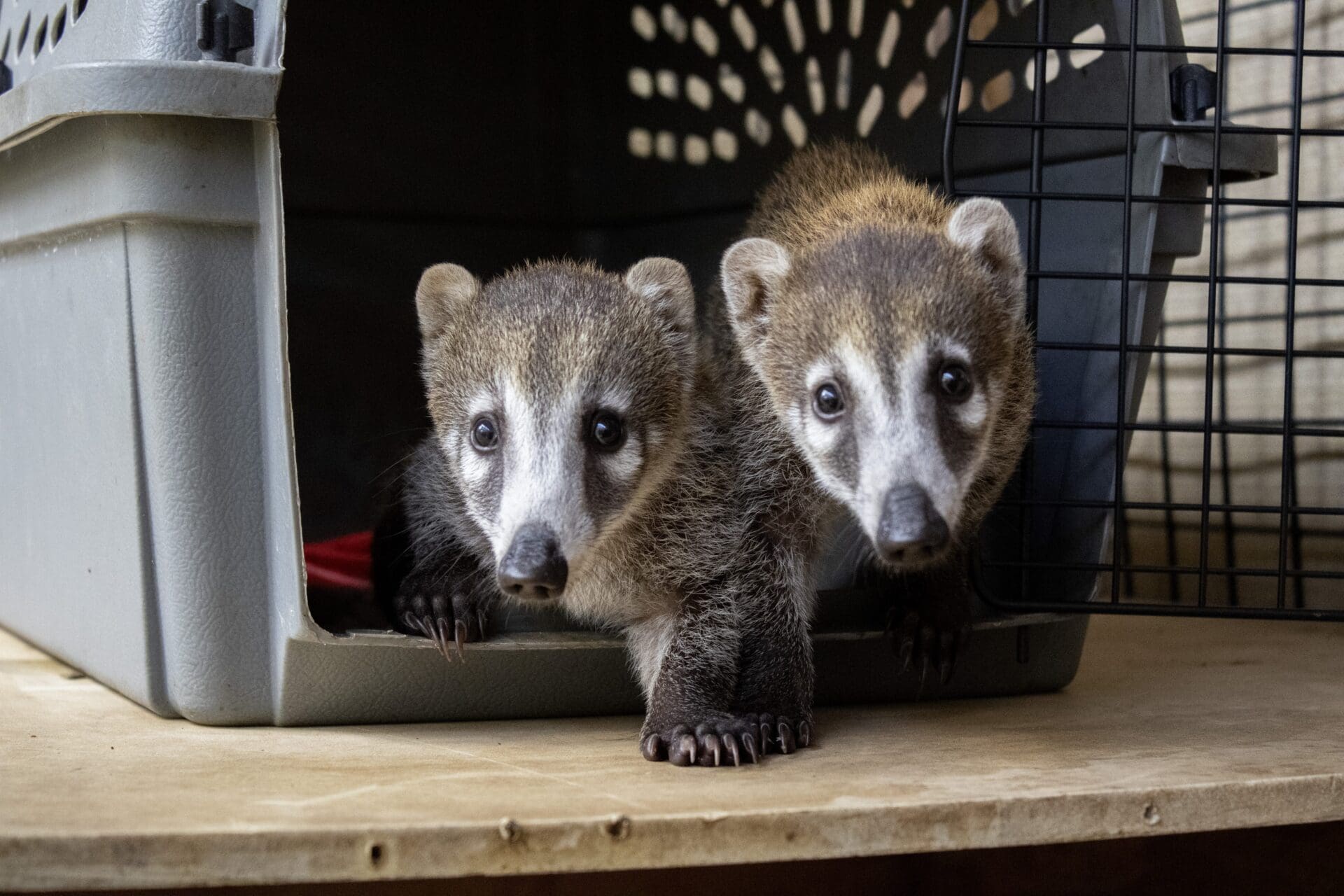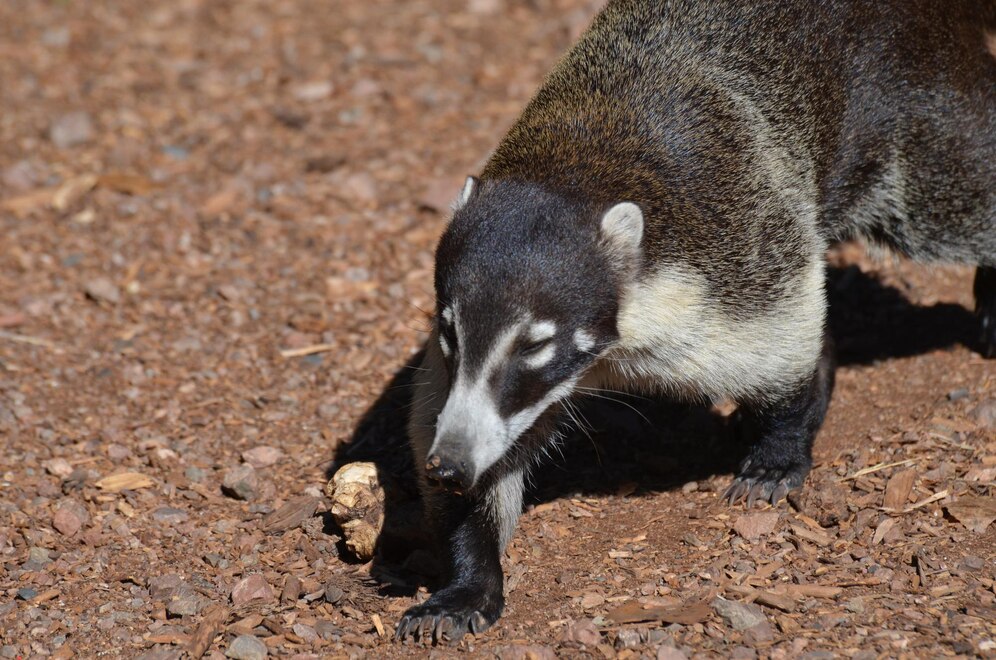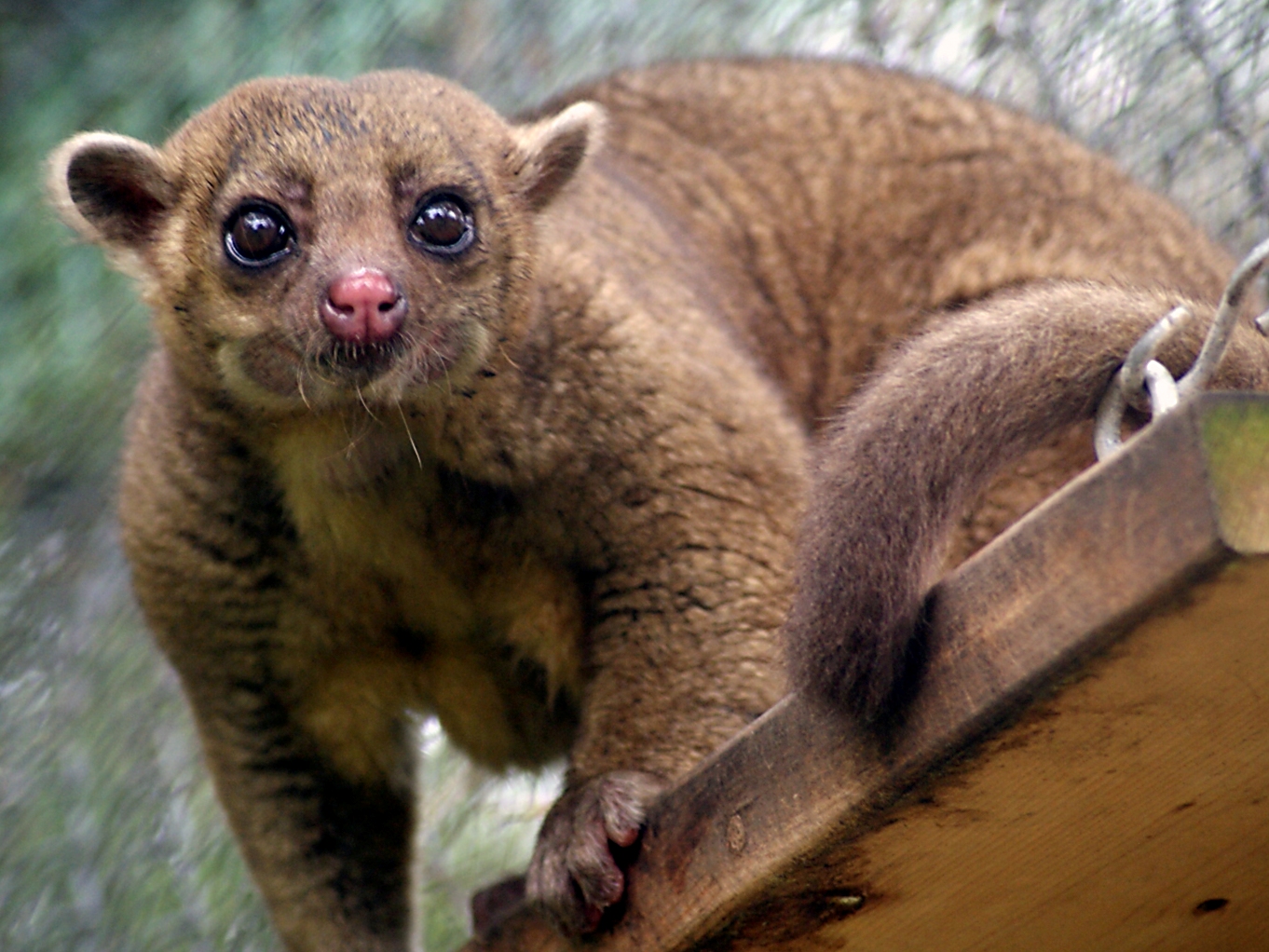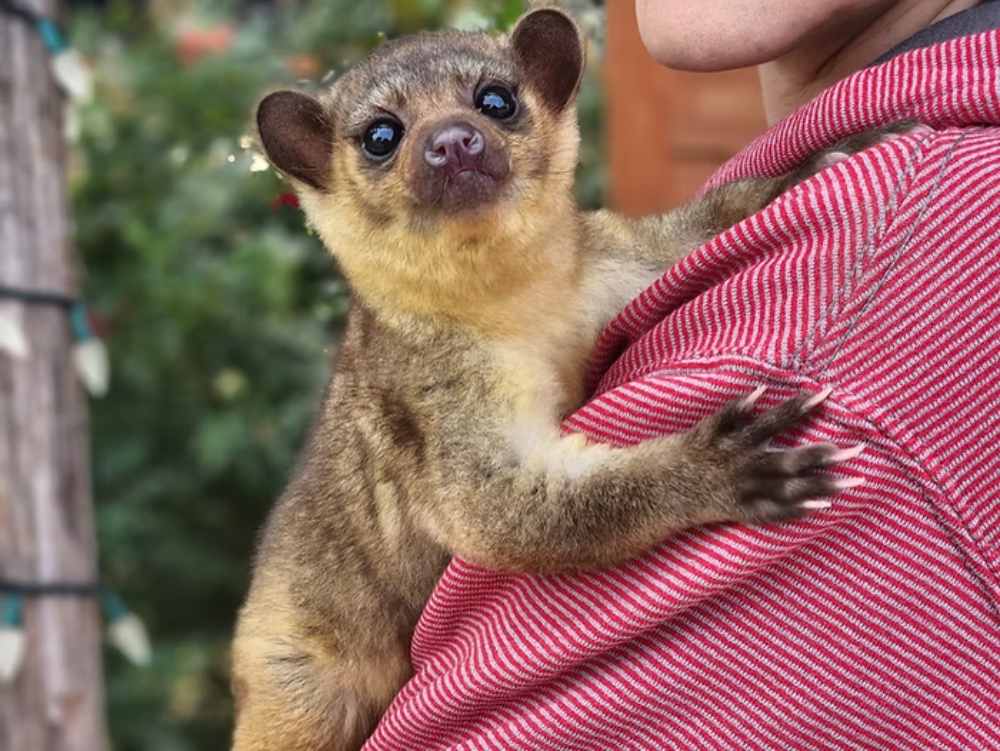
Kinkajous, Coatis, and Other Unique Mammal Pets: A Comprehensive Guide
Are you seeking a unique pet? Unique mammals are trending. Those include two of my favourites: kinkajous and coatis. These creatures are unknown to most people, but they are intelligent and interesting. They originate from the rainforests of Central and South America. They require specialised attention and a habitat that caters to their instinctive desires.
So, do you want to keep kinkajous, coatis, or other exotic mammals? This guide takes you through the basics of caring for these creatures. Whether you’re hoping to be an exotic pet owner or are simply curious, this guide will help you decide if an exotic pet is right for you.
Why Exotic Mammals?

The Appeal of Unique Companionship
Exotic mammals like kinkajous and coatis provide unique companionship. Their playful nature, curiosity, and intelligence make them engaging pets. They enjoy problem-solving and interacting with their owners.
Educational Opportunities
Owning an exotic mammal offers valuable learning experiences. You can learn about their habitats, behaviours, and conservation needs. This knowledge fosters appreciation for wildlife and encourages responsible pet ownership.
Challenges and Responsibilities
Exotic pets require dedicated care. They have specific dietary, housing, and veterinary needs that differ from traditional pets. Potential owners must be ready to invest time, effort, and money into their care.
Caring for Kinkajous and Coatis

Understanding Their Natural Habitat
Kinkajous and coatis thrive in tropical rainforests. They need warm, humid environments with climbing spaces. Mimicking these conditions at home is crucial for their well-being. Provide vertical space, branches, and hiding spots to replicate their natural surroundings.
Dietary Needs
- Kinkajous: They are mainly frugivores. They eat fruits, nectar, and occasional protein like insects and eggs. Their diet should include fresh fruits like bananas, mangoes, and papayas, along with protein supplements.
- Coatis: These animals are omnivores. They eat fruits, insects, small mammals, and eggs. A balanced diet should consist of fresh fruits, vegetables, lean meats, and high-protein commercial foods.
Creating a Suitable Environment
- Enclosure Requirements:
- Spacious, escape-proof enclosures with plenty of climbing structures.
- Secure fencing to prevent escapes, as both species are skilled climbers.
- Enrichment items like tunnels, puzzle feeders, and toys to keep them engaged.
- Socialisation and Interaction:
- Kinkajous are nocturnal and need a quiet environment during the day.
- Coatis are social and may benefit from companions if raised in pairs or small groups.
- Both species need regular interaction with their owners for trust and mental stimulation.
Health and Veterinary Care
Regular veterinary check-ups are vital for exotic mammals. Not all vets specialise in exotic animals, so find a knowledgeable one in advance. Key health concerns include:
- Parasite control – Regular deworming and flea prevention.
- Dental care – Proper diet to prevent dental issues.
- Obesity prevention – Monitor food intake and provide exercise opportunities.
Additional Expert Tips & Common Mistakes to Avoid
Best Practices for Exotic Mammal Care
- Consistency in Care: Set a routine for feeding, cleaning, and interaction to maintain a stable environment.
- Proper Training: Use positive reinforcement for training to help with behaviour management.
- Secure Housing: Always ensure enclosures are escape-proof, as kinkajous and coatis are naturally curious.
Common Mistakes and Misconceptions
- Assuming They Are Low-Maintenance: Exotic mammals need specialised care and daily enrichment.
- Neglecting Veterinary Care: Regular check-ups with an exotic pet vet are key to their well-being.
- Improper Diet: Feeding processed human foods can lead to obesity and health issues.
Advanced Insights and Expert Recommendations
Legal Considerations
Before getting an exotic mammal, check the legal requirements in your area. Laws about exotic pets vary widely. Some places require permits or ban ownership. Ensuring legal compliance is essential to avoid penalties.
Ethical Considerations
- Responsible Sourcing: Always get exotic pets from reputable breeders or rescue organisations prioritising animal welfare.
- Conservation Awareness: Support conservation efforts and educate others to help prevent illegal wildlife trade.
Long-Term Commitment
Kinkajous and coatis can live over a decade in captivity. This means ongoing commitment from their owners. Before adopting, make sure you are prepared for the long-term responsibilities of caring for these animals.
Fulfilling and Challenging to Keep as Pets

Keeping kinkajous, coatis, and other exotic mammals may be enjoyable but isn’t without its difficulties. These animals are smart and fun, but they require attention, work, and money. Understanding diet, nutrition, and lifestyle can help your pet live a long, happy, and healthy life.
For dedicated individuals who are prepared for the challenges of owning exotic mammals, these pets can offer an incredible journey. So, if you would like to own one, kindly do some homework and find out the legal, ethical and long-terms implications before committing.
So, think you could handle a life with an exotic pet? This guide will help you make the right decision and ensure you are able to give these incredible animals the care they deserve.


